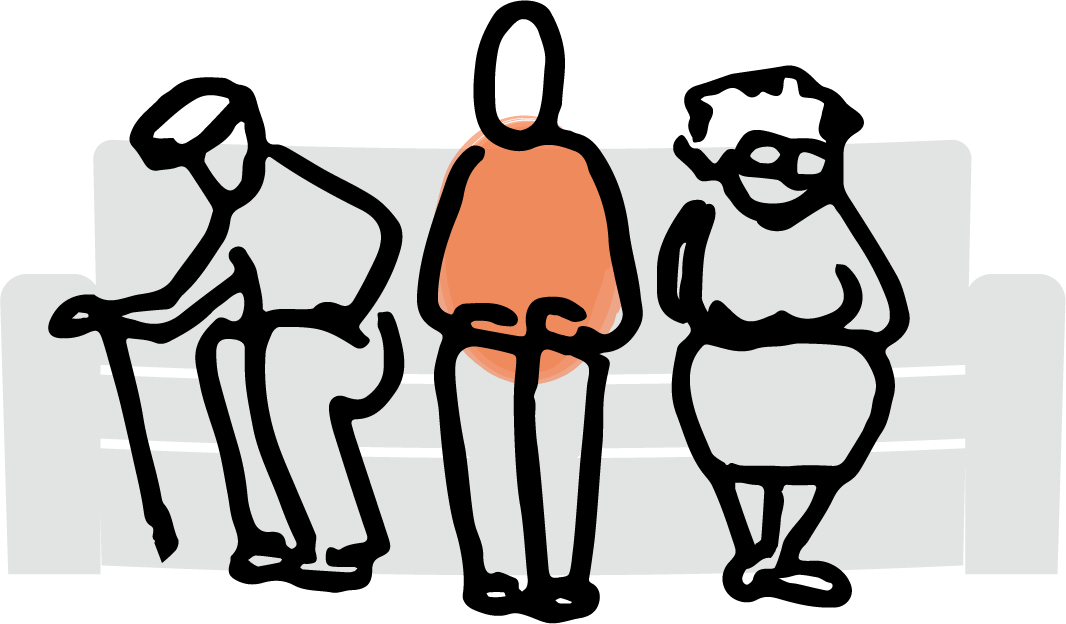When Every Minute Matters
Heart attacks aren’t always obvious. What you and your parent need to know.
Would you know if your parent was having a heart attack?
The answer might surprise you.
That’s because symptoms of a heart attack in older adults are rarely as dramatic as Redd Foxx clutching his chest and proclaiming, “This is the big one!“
In fact, warning signs of a heart attack in older adults can be so subtle that they are easy to miss or dismiss as other ailments. Especially if mom or dad is dealing with multiple health conditions. Or your family doesn’t have a history of heart problems.
So instead of getting help or telling you something isn’t right, dad waits it out until he can’t wait anymore — or someone else decides for him.
That delay (forgive me) is the heart of the problem.
Heart attacks are caused when blood flow to the heart is blocked. They can happen suddenly without warning, or they can happen more gradually.
Either way, early detection and urgent treatment are critical to prevent permanent damage. And every minute matters.
“Time is muscle,” says Daniel Forman, MD, chair of geriatric cardiology at the University of Pittsburgh Department of Medicine. “When you’re having a heart attack, your heart muscle is struggling for survival — its cells are dying one by one.”
Warning Signs to Watch For
Heart attack symptoms become less obvious with age. Look for these clues:
Your parent may not feel severe chest pain, one of the common signs of a heart attack. The sensation may feel more like discomfort or heartburn. And some people don’t feel any chest pain. This is most common with older adults, people with diabetes, and women.
Shortness of breath is a red flag. Not so much if mom gets winded from walking up stairs. But if she can’t catch her breath while watching television or while lying in bed, it’s go time.
Extreme fatigue. As in, dad feels exhausted and has to lie down, or mom is wiped out by routine activities and feels like she doesn’t have the strength to get up from the couch.
Sudden weight gain caused by fluid build-up. Heart failure can cause fluid retention. Look for swelling around the ankles, feet, legs, and abdomen.
Other warning signs include heartburn, nausea, vomiting, and sudden confusion.
Health conditions that put your parent at greater risk include diabetes, obesity, high blood pressure or cholesterol, a history of smoking, and a family history of heart disease or heart attacks.
Watch for more than one symptom. “It’s often a constellation of one thing on top of another,” says Dr. Forman:
“There may be some sense of stomach discomfort, perhaps some palpitations with shortness of breath, or some sense of vague discomfort and dizziness.
“It’s not like you just ate something bad and have isolated stomach pain. It’s a variety of things that may all come together.”
Don’t Play Doctor
So how do you know if mom’s fatigue is an early warning sign of heart failure, or a side effect of her new meds?
That’s easy: You won’t until mom gets proper medical attention.
Don’t let yourself or your parent play doctor. If you even think mom or dad might be having a heart attack, call 911.
The clock has already started ticking and mild symptoms can become severe quickly. If that happens, emergency responders can do more for your parent than you ever could behind the wheel.
And if it’s a false alarm? Count your blessings. Better to apologize to mom for the abundance of caution than having to apologize to the rest of your family for not acting sooner.
One more thing: Heart attacks can happen to anyone at any age. And chronic stress increases your risk.
Yah, I’m talking about us. Adult children who care have a bad habit of taking care of everyone but themselves. Especially women.
Don’t make that mistake. See your primary care doc regularly. Listen to your body. And take any warning signs seriously.
For More:
- Cardiac Arrest vs. Heart Attack (AHA)
- 3 Heart Attack Signs Women Shouldn’t Ignore (Cleveland Clinic)
- Heart Attack or Panic Attack? How to tell the difference (Cleveland Clinic)
- Diabetes and Silent Heart Attacks (Healthgrades)
- 5 Warning Signs and Symptoms of Early Heart Failure (Harvard Health)
Thanks for caring,

New to My Aging Parents?
Join us for practical tips and strategies to help you meet the challenges of helping your aging parents. Hand picked and delivered by email biweekly.
No charge. No spam. Unsubscribe anytime.
